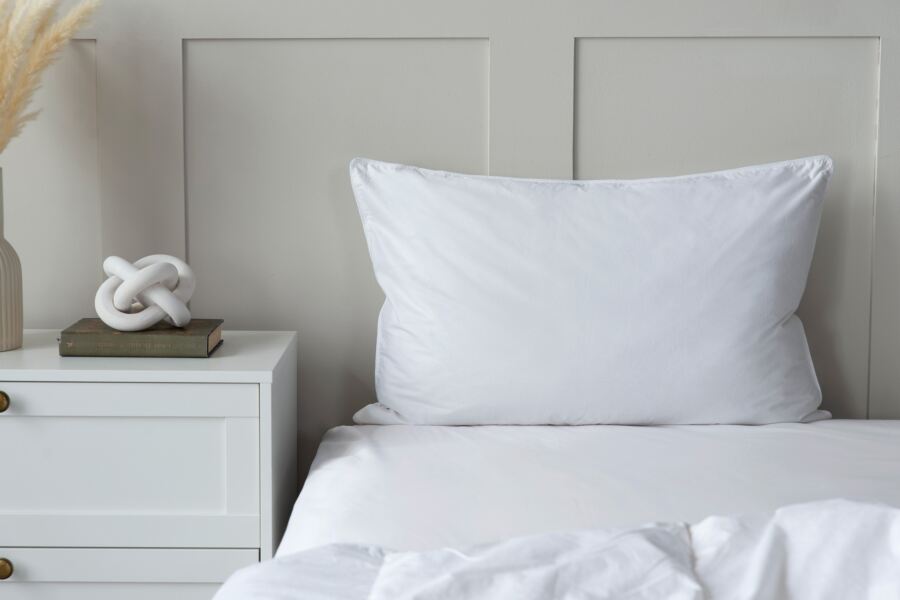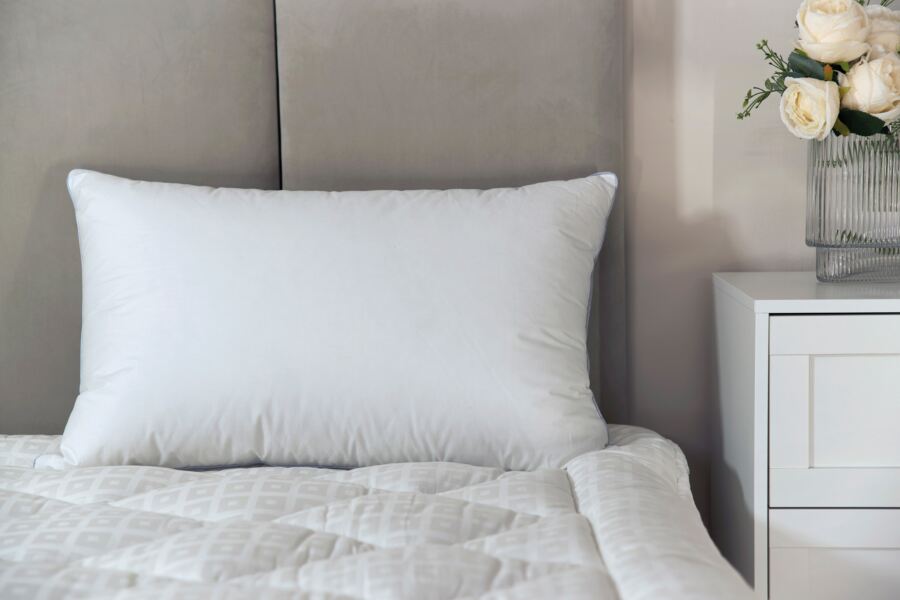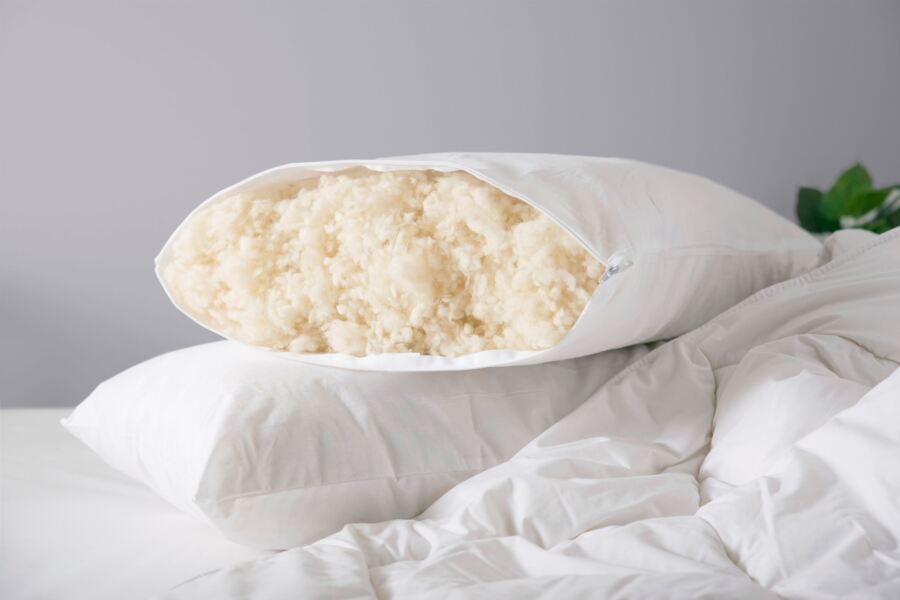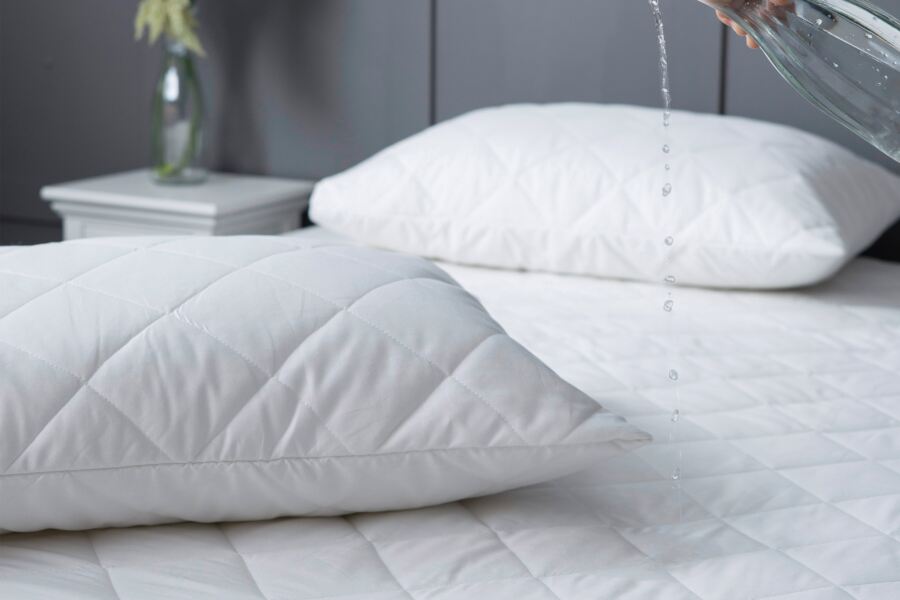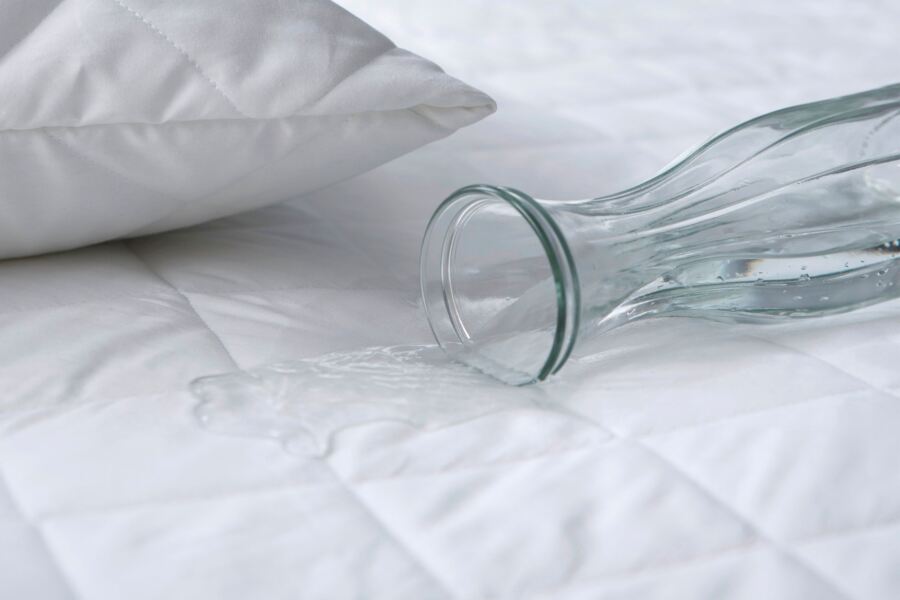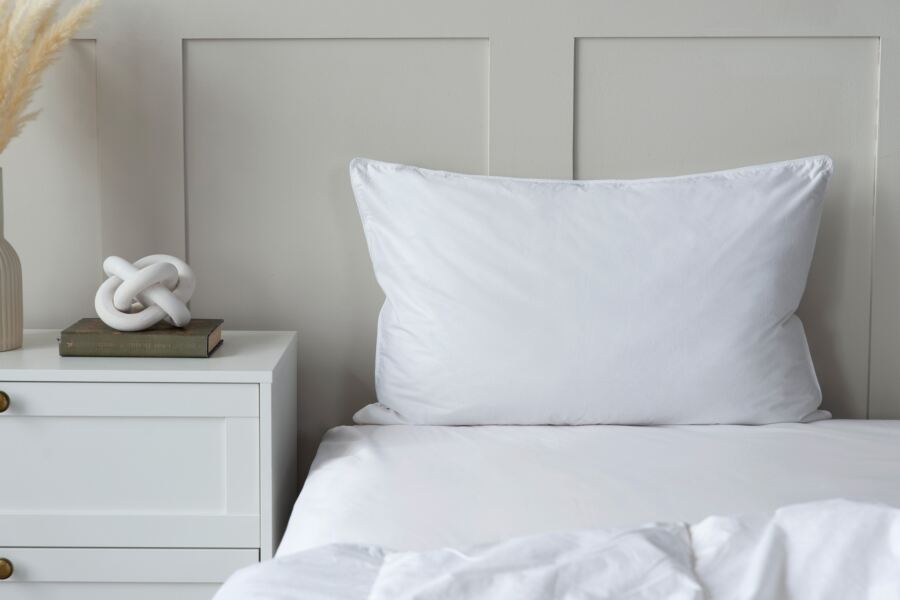Table of Contents
- How Often Should You Wash Bed Sheets?
- How To Wash Bed Sheets: A Step-By-Step Guide
- Tips To Keep Your Bedding Clean And Fresh
- Get A Great Night's Sleep With Belledorm
- FAQs
- Final Thoughts
While it may not be everyone's favourite housekeeping chore, it's important to wash bed sheets correctly to maintain good hygiene, keep those pesky bed bugs at bay and, just as importantly, for optimum comfort.
After all, there's nothing quite like slipping into a fresh bed with clean sheets, is there?
Our guide will cover everything you need to know about how to wash bed sheets, as well as how often you should be doing it, and much more.
How Often Should You Wash Bed Sheets?
Washing your bed sheets is important for a number of reasons. Besides our clothes, our sheets are the only other materials that are in constant close contact with our bodies. And, our clothes are washed at least after every other wear.
Thankfully, there's no need to go quite so far as washing your sheet every other day, but it is important to adopt a stringent routine of washing your sheets at regular intervals.
Although not nice to think about, when you consider the amount of hair, skin, sweat and body fluids that our bed sheets have to contend with, it makes it easier to understand the need to thoroughly clean your bedding!
Experts recommend washing your sheets once a week ideally, but certainly not waiting any longer than a fortnight to get them a date with the washing machine.
In the summer months, when you may be prone to increased sweating at night, you may want to stick to the once-a-week rule. In the colder seasons, you might just get away with leaving it for two weeks - just don't leave it any longer!

How To Wash Bed Sheets: A Step-By-Step Guide
Before you start washing sheets, you should always consult the manufacturer's guidelines, which will give you a good outline of how to conduct your wash.
Our how-to guide focuses on how to care for cotton and linen sheets - the most popular choices of bed sheets. (Other types of bed sheets, such as some synthetic, wool and silk sheets may require special treatment.)
1. Tackle stains first
Once you strip your bed, give it a quick check over for any obvious stains. Ideally, these should be dealt with immediately to prevent them from settling into the fabric and becoming more difficult to remove.
If you do have a stain, dampen the fabric and add a stain remover. If you don't have any stain remover to hand, you can add a small amount of diluted detergent, although this may not work quite as well.
If you are dealing with blood stains, cold water is the way forward. As soon as you can, run the sheet under cool water, which can often help lift the stain completely. If the stain still remains, sprinkle it with salt and leave the sheets to dry. Repeat as necessary.
2. Washing machine
While you should follow the manufacturer's guidelines when washing sheets, you should also be mindful that a hotter water temperature in a regular washing machine will kill more germs than were you to wash them in cooler water. It's advised from a hygiene perspective that you wash your sheets at a higher temperature at least every few washes.
Use a quality washing powder, pods or liquid, and don't forget the fabric softener for best results. If your sheets are a little faded, you can add three or four tablespoons of lemon juice. This will not only make them smell amazing, but they'll also look much brighter.
Make sure that you do not overload your washing machine; any wash cycle should not be more than three-quarters full. Try to avoid washing bed sheets with towels, as doing so means you can run the risk of tearing your sheets due to the weight of the highly-absorbent towels.
3. Drying your sheets
There are a number of ways in which you can dry your sheets. Firstly, assuming you don't have allergies and the weather is good (certainly not always a given here in the UK!), you can hang your sheets outside to air dry. Not only is it eco-friendly and can save you money on your bills, but it also leaves your sheets with that unmistakable fresh smell.
If you prefer, you can pop your sheets in the tumble dryer on a low and slow setting. Lower temperatures and a slower cycle will allow your sheets to last for much longer, adding softness and removing creases, too.
Or, you can use a blended method, whereby you hang your sheets on a clothes horse inside (if it's a bad day) and leave them for a few hours before giving them a short tumble dry.
4. Iron your sheets
Although ironing has gone a little bit out of fashion, removing the creases from your sheets makes for the best sleep experience. But, if you're quick with drying and folding your sheets, you may not even need to iron your sheets at all.
If things haven't quite gone to plan and you find yourself with dried, wrinkled sheets, simply take a few minutes to heat up your iron and, hey presto, in no time at all, you'll have clean, crisp sheets that are as good as new.
If you have fitted sheets, the prospect of ironing them may be a slightly daunting one. However, by starting at the corners and ironing the rest of the sheet, you should encounter no problems. Larger sheets, too, can be tricky to iron out, so fold these into halves or thirds. Be careful not to press the folds, which will lead to more creases.
5. Store correctly
There's no point in painstakingly and meticulously washing and drying sheets only to haphazardly discard them in the linen cupboard. While it's perfectly fine to neatly fold them and place them in a well-ventilated space short-term, if you don't plan to use the sheets for a while, a clothes storage bag is recommended.
If your newly washed sheets are still slightly damp, allow them to dry fully before storing; otherwise they can start to smell, and it gives mould a chance to develop.

Tips To Keep Your Bedding Clean And Fresh
Follow our top tips for making your bed and bed sheets looking - and feeling - their freshest for longer:
-
Don't eat in bed. This leads to a buildup of crumbs and other bits of debris that can be very unpleasant to sleep with, as well as lead to quite a mess!
-
Why not invest in a mattress protector to give your mattress an extra layer of safety from coffee spills, dead skin cells and sweat? These protectors are extremely comfortable and will help your mattress potentially last much longer.
-
Once in a while, air your bedroom by leaving the windows open and pulling your sheets back, which will help fight germs, bed bugs and dust mites.
-
Although we all love a cuddle with our pets, it's a good idea not to let them leap into bed with you - admittedly, at times, this can be much easier said than done! Mucky paws and stray moggy hairs can quickly cause a mess on beautiful white sheets (or any colour for that matter), so limit your pets' time in your bedroom - if possible!
Get A Great Night's Sleep With Belledorm
Here at Belledorm, we have just about every bedding solution you could ever need to make your bed a sanctuary, free from the stresses and strains of the modern world. From sheets, duvet covers, protectors, pillows and much more, you'll find everything you need to get the sleep of your dreams!
FAQs
Should you wash sheets with hot or cold water?
Although it varies depending on your washing machine, 40°C tends to be the optimum temperature to wash bed sheets. If, however, you've left your sheets a little longer than you should have, consider a higher wash, especially in cold and flu season.
Hot water kills more germs than a low heat setting, but always be sure to check the washing instructions on your sheets' labels.
Can I hand wash bed sheets?
While you can hand wash bed sheets, it is best to use a washing machine to do so in order to get a deeper clean. On occasion, you can soak your sheets in warm water and wash them by hand if your sheets aren't too dirty. Those that are heavily soiled with obvious stains and/or haven't been washed in some time should be machine washed in a hot water setting.
Final Thoughts
We hope this guide has helped explain exactly how to wash bed sheets. Although not exactly an enjoyable job, clean and comfortable sheets are important to eliminate bed bugs, keep your bed hygienic, and, of course, have a wonderful night's sleep.
Sweet dreams!

